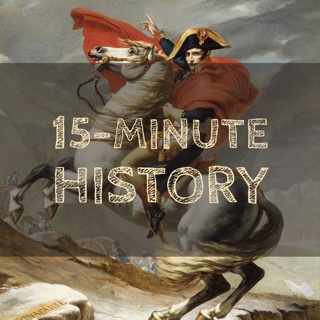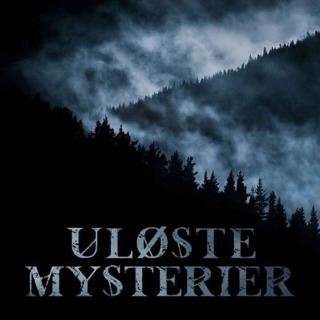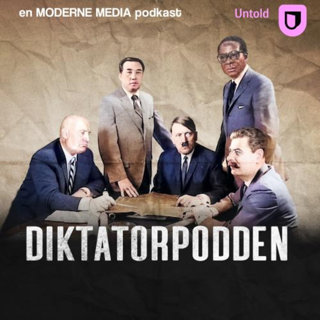
George Patton & the Third Army | A Discussion
Join us in this exciting discussion as we walk through the life of General George Patton, his leadership, heroism, and his effect on the world we know today.
19 Jun 202346min

George Patton & the Third Army | “You Wonderful Guys”
The dull hum of aircraft filled the morning air. German soldiers looked up from the French town of St. Lô, expecting to see a few enemy fighters bearing down on them. Their hearts froze in their chests as nearly a thousand bombers emerged from the clouds. They had heard of the devastation wrought by their enemy on the Fatherland’s cities, but St. Lô was only a tiny provincial settlement far from the Paris metropolis. In minutes, their world was aflame as Allied bombs exploded around them and tore flesh and metal apart in equal measure. The panzer division holding St. Lô was nearly annihilated in the first of three waves, and little was left as the sun reached its noon height. Then, the survivors heard engines approaching from the north and east in the direction of the Normandy beaches. Tanks and half-tracks bearing white stars swarmed through the town, finishing off the defenders and ripping open the Nazi left flank that had held the Allies back for over a month. The Third United States Army is one of the best-known units of the Second World War. From the opening move on St. Lô in August 1944 to the war’s end nine months later, it liberated an area of Nazi-occupied Europe roughly the size of Afghanistan. Its soldiers were the best-trained men in the US Army, its officers and NCOs among the most professional in American military history, and its record of battle remains unsurpassed in enemy casualties inflicted and land covered. Most of the credit is due, of course, to the soldiers in tanks and trucks, but even the proudest of these would point to their commander as the man who made the Third Army such a terrifying weapon of war: General George S. Patton, Jr. Join us for this special, double-length episode of 15-Minute History as we teach you about General George Patton, his life, leadership, heroism, and his effect on the world we know today.
12 Jun 202330min

The Arab Revolt | A Discussion on the Common Purpose & Competing Interests
World War 1 had lasting consequences that can be seen in the world we know today. Join us as we discuss one part of that great conflict, the Arab Revolt, and the work of Thomas Edward Lawrence, who is known today as Lawrence of Arabia.
5 Jun 202325min

The Arab Revolt | Common Purpose, Competing Interests
The riders sat on their mounts, horses and camels, and gazed across the desert toward the shimmering sea and a small village on its shore. An old fortress dominated what passed for a skyline, the only building that stood more than two stories above the ground. Clusters of palm trees waved in the hot, dry wind, and the soldiers could see knots of people moving about in the town's plaza. No enemy troops were visible and no defenses prepared. The long journey across the desert toward their target had yielded a strategic surprise. Fifty men on horseback stayed in place, while the larger group of four hundred men riding camels began to move left and right. The soldiers on foot rested, knowing they would soon have to run across rocky ground to keep up with the cavalry. Two men had planned this attack; one would lead the horsemen straight toward the target while the other rode his camel around to hit the flanks. With only a nod from their leader, the men charged toward the town of Aqaba. Most students of the First World War know of the great campaigns by mighty armies on the Western and Eastern fronts. Some know of smaller battles fought in Italy, Greece, and on the Gallipoli Peninsula in Turkey. But few—apart from some movie buffs—know the story of the Great Arab Revolt of 1916-18 that brought down an empire that had lasted for over six centuries and gave us the modern Middle East with all its glories and terrors. The revolt was a minor affair in the minds of generals in London, Paris, Berlin, and Constantinople, and its impact on the overall course of the Great War was small. But it produced some of the greatest heroes of that war, men whose deeds shaped the future course of millions of lives around the world. Join us as we teach you about the Arab Revolt and Thomas Edward Lawrence, Lawrence of Arabia.
29 Mai 202319min

The Coronation of King Charles III | A Discussion with Dr. Dominic Selwood
Join us as we discuss the coronation of King Charles III with famed British historian, Dr. Dominic Selwood. In this special discussion, Dr. Selwood explains the impact of the coronation, what the world can expect from the new king, and the effect such events have had on world history. Dr. Dominic Selwood is a historian, journalist, and barrister. Most recently, he is a bestselling author of the critically-acclaimed, "Anatomy of a Nation: A History of British Identity in 50 Documents". In addition to being a bestselling author and novelist, he is a frequent contributor to national newspapers, radio, and TV including The Telegraph, The Independent, The Spectator, The Catholic Herald, Sky News, and the BBC. He has a doctorate in history from the University of Oxford and a master's from the Sorbonne. He is a Fellow of the Royal Historical Society and the Society of Antiquaries. He graduated from the Royal Military Academy Sandhurst and served as an officer in the British Army. He lives in London with his family.
22 Mai 202352min

Audie Murphy | A Discussion about an Uncommon Hero
Join us as we discuss the life and heroism of Audie Murphy, the most decorated soldier in WW2.
15 Mai 202329min

Audie Murphy | An Uncommon Hero
On the morning of January 26th, Murphy and his men saw movement in the tree line ahead. As the morning fog cleared, over two hundred German infantrymen and six Mark VI Tiger Tanks appeared and began a counterattack. I will stop here for a moment and give you an opportunity to take in this scene. First, consider eighteen men with two armored vehicles against two hundred infantry. Faced with just these odds, there is no strategic or tactical way Murphy’s men could hold the line. Second, add the armor. A single Tiger tank was near impossible to destroy by Allied armor. To put it in perspective, one Tiger Tank could take out more than twelve American Sherman tanks before being crippled enough to be put down. It fired an 88-millimeter shell, the most powerful of the German artillery, and could decimate an entire town without any support. Six of these advanced on Murphy and his eighteen men. Six. I don’t need to tell you the odds of the eighteen men winning against such a force, because there are no odds. It's zero. Listen now and join us in awe at what happened next. Remember…this is real history. Join us as we teach you about the life and heroism of Audie Murphy, the most decorated soldier in WW2.
8 Mai 202317min

Eisenhower’s Farewell Address | A Discussion
Join us as we discuss Eisenhower's farewell address, the warnings he included, and the impact of what he got right.
1 Mai 202344min




















